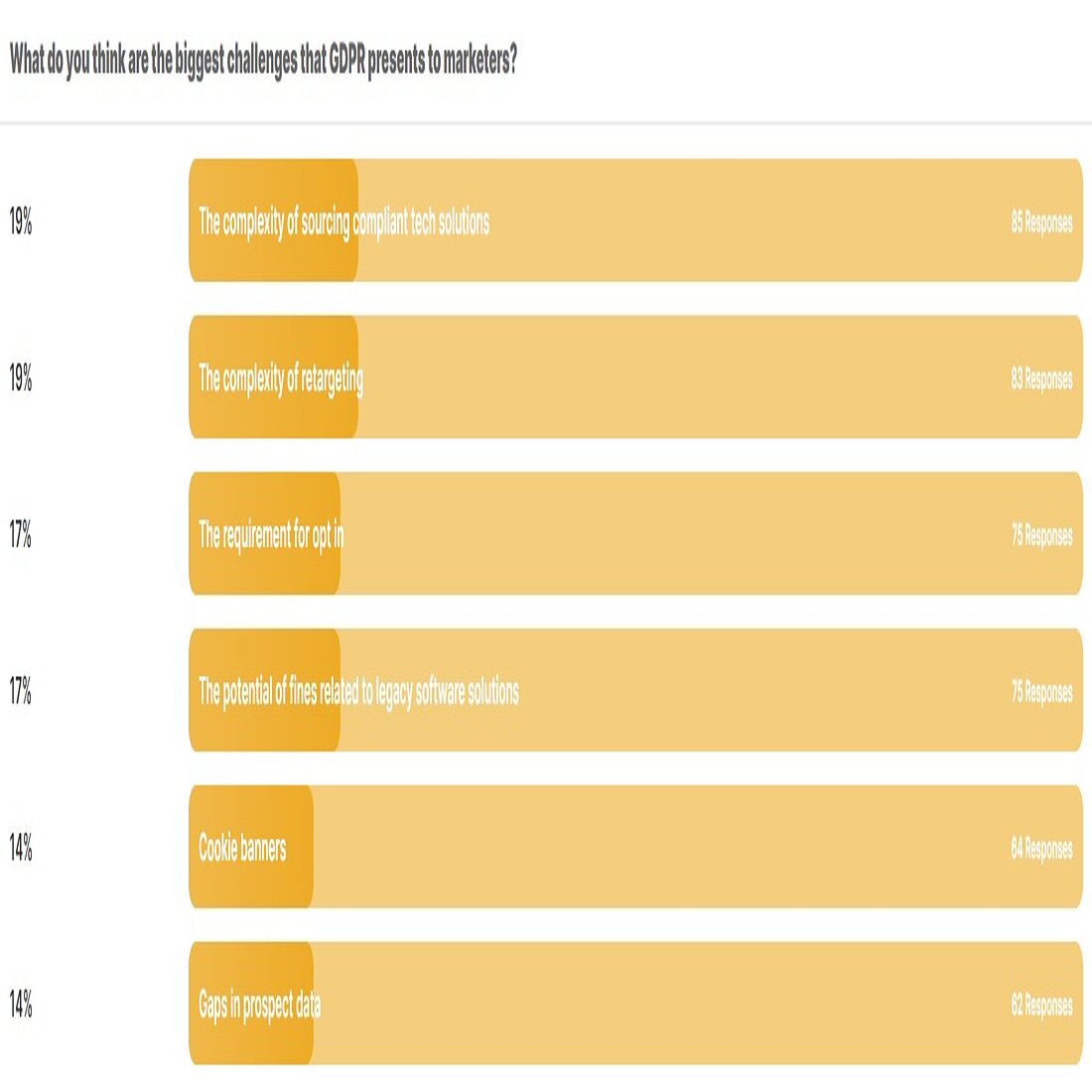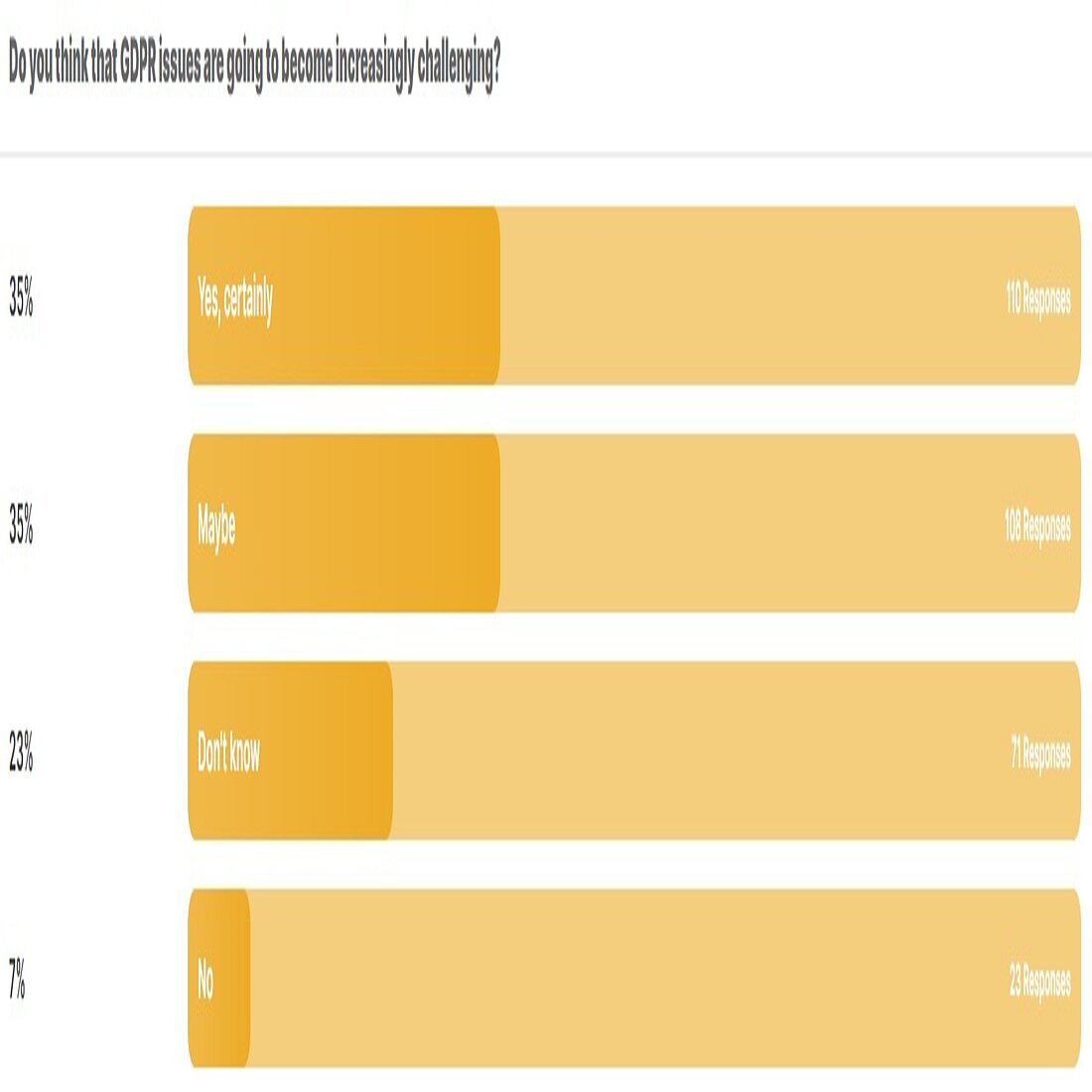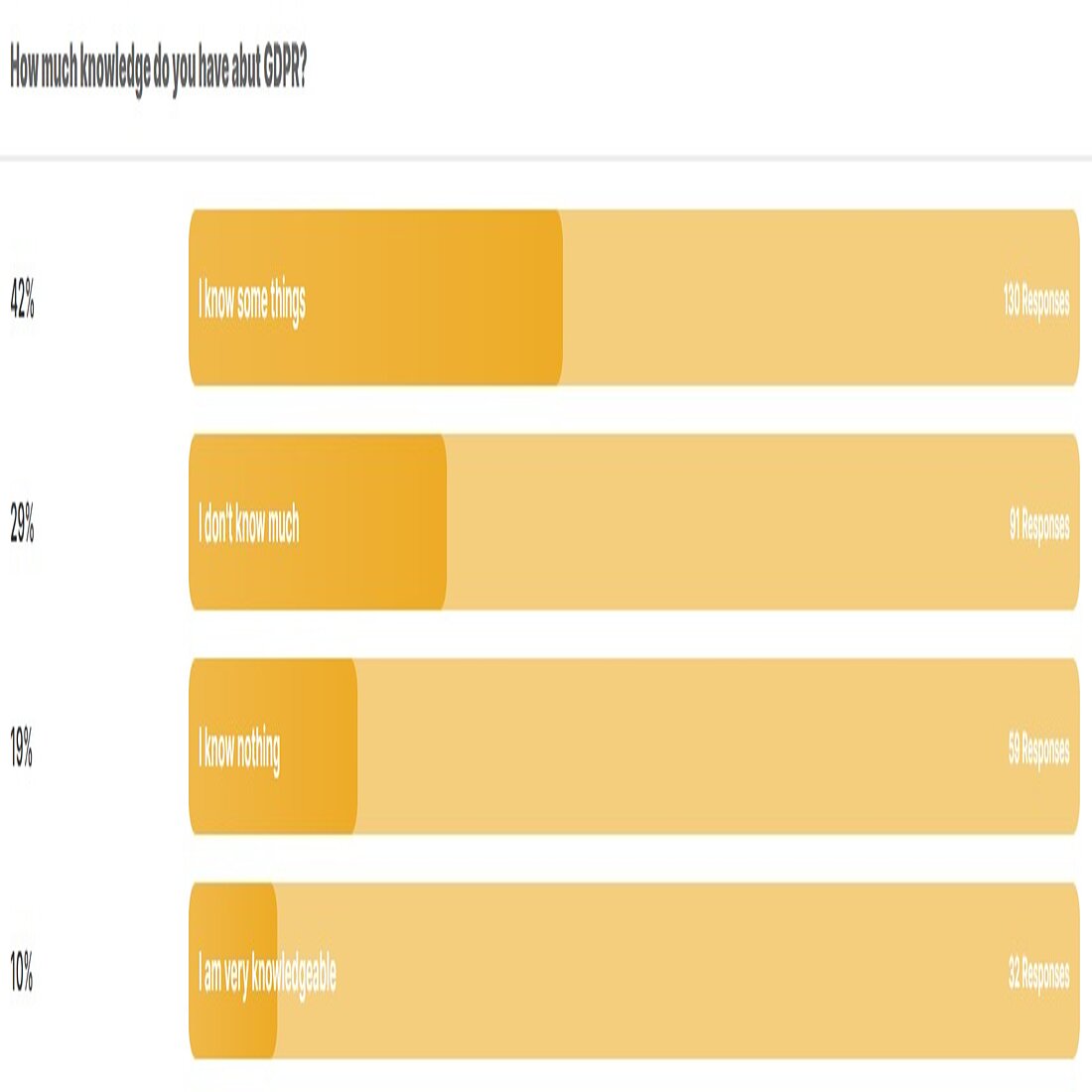- Why Us?
- Features
White Label
For SaaS Platforms & Agencies
Provide our complete analytics suite to your clients, directly within your own interface and with your/their own branding. Discover Analytics-as-a-Service and White Label Analytics. Great benefit, minimal effort.
- Pricing
- White Label
- Success Stories
- Partner
- ResourcesExpand Your Knowledge

Simon Coulthard February 23, 2022
3 min
[SURVEY REPORT] GDPR Shaping the Modern Marketing Tech Stack
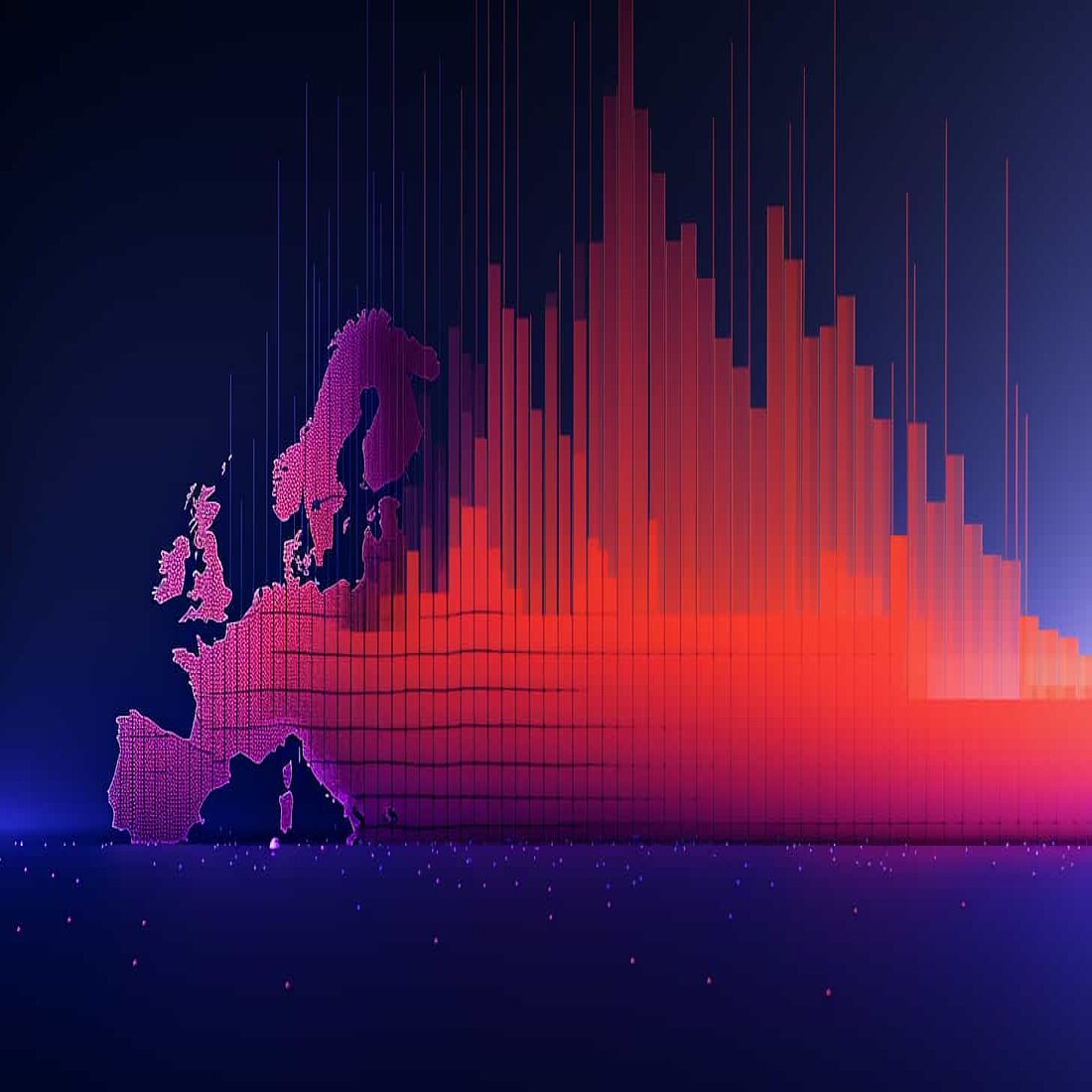
With GDPR - and especially concerns around big US tech - becoming increasingly prevalent in the news of late, we decided to conduct a survey of more than 300 of our platform users to discover how this ever-intensifying issue is impacting them.
The survey, and its related takeaways, also form part of a GDPR & Data Privacy pillar, with our entire marketing team coming together to provide a wealth of educational material and insight for marketers and business owners over the coming weeks.
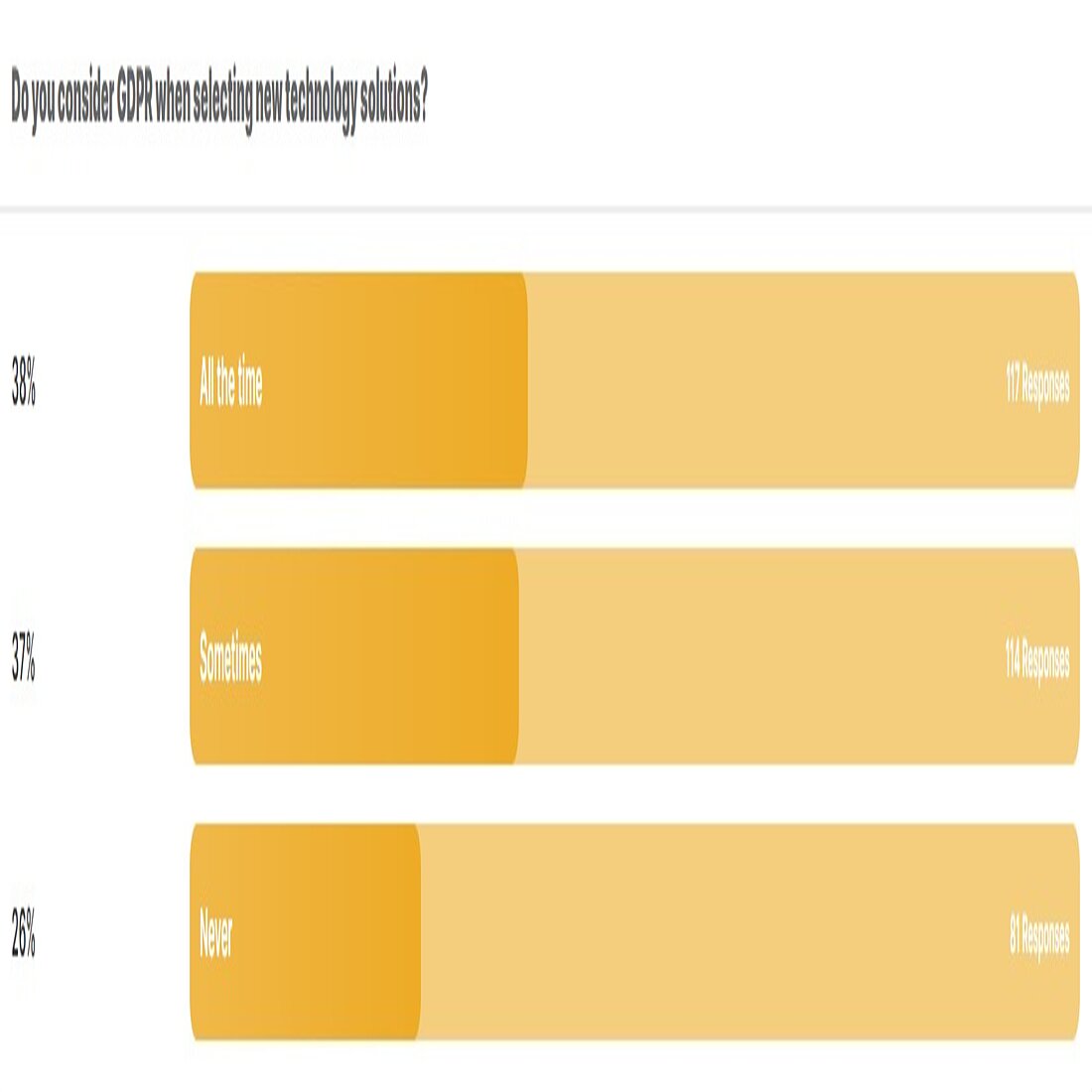
The Impact of GDPR on Marketers
GDPR and other similar data privacy policies have, for a long time, presented challenges to marketing departments.
Some of these are clear in all our day-to-day lives - the invasive cookie consent banner, for example - while others relate more to the back-end processing and storage of personal data.
The latter of these two issues is what has been dominating the conversation recently, with the Schrems II decision regarding the non-compliance of Google Analytics causing a mild panic in marketing teams across the continent (and beyond).
The Tech Stack
So, with Google Analytics facing a potential EU-wide ban and increasing scrutiny over the use of CRMs, automation, and other third-party tech, how are marketers feeling?
“Ever since its introduction, GDPR, and data protection in general, has played a central role in everything we do at LUXHUB - from developing new products to selecting vendors and service providers,” says Alexandre Kielmann, the Content Marketing Officer at LUXHUB - a Luxembourg-based fintech.
“For example, our [Data Protection Officer (DPO)] intervenes when selecting service providers: he makes sure data is stored in the EU and is therefore compliant with the GDPR regulation, and respects European values in general: security, transparency, availability,” he adds.
This increased collaboration between marketing leaders and DPOs is not an isolated case, with the relationship becoming increasingly vital - especially when it comes to the tech stack.
The sense of change regarding tech and vendor selection was one of the first major insights from our survey, with 75% of respondents saying that GDPR is, at least on occasion, a consideration when selecting new martech.
This has increased focus on EU-based, privacy-first tech and even led to the development of a dedicated website - european-alternatives.eu - to promote EU-based tech solutions.
“I started European Alternatives to show that there are good alternatives to the big US tech companies and because it bothered me that they are so hard to find,” explained the website’s founder, Constantin Graf.
“Especially in times of GDPR and major concerns about data transfer between the EU and US, many people are quite rightly looking for European alternatives and I wanted to help them,” Mr Graf continued.
Indeed, two of the most prominent concerns outlined in the survey were both related to tech, with the complexity of sourcing compliant tech solutions and the potential of fines related to legacy software being front of mind for 19% and 17% of respondents, respectively.
Addressing the Key Concerns
Despite the fact that 71% of those surveyed felt that they were doing a good-to-excellent job at protecting user data, close to half (42%) suggested that they only know "some things" about GDPR, with 29% saying they know very little. Worryingly, 19% said that they knew nothing at all.
“This clear knowledge gap is concrete evidence of the requirement for better and more digestible GDPR resources for marketers,” claims Matt Sarson, TWIPLA’ Chief Marketing Officer.
“Beyond this educational push, there is also real value to be derived from increased collaboration and alignment between marketing leaders and dedicated Data Protection Officers - or marketing consultancies - to manage the related tech transformation,” he adds.
What the Future Holds
The marketing technology landscape has been growing at an incredible rate, with the number of vendors having increased more than 50-fold over the past decade.
The escalating concerns over GDPR are unlikely to simmer any time soon, while - even if a new EU/US data privacy agreement was found - user preferences are already being cemented for the long term.
Quite simply, for many consumers big tech is a red flag and hence European solutions are growing in popularity.
In the same way that consumers often lean towards brands with an ethical approach with regards to green energy, they have also started to increasingly favor brands and websites with a privacy-first approach to their tech stack.
It wouldn’t be groundbreaking to suggest that companies that place their customers at the center of their strategy tend to reap larger rewards in the long term.
Culturally, we need to move away from treating digital consumers as commodities and provide the same open, transparent, and safe experiences considered absolutely unquestionable in the majority of physical customer interactions.
The balance to find is between performance - and sacrificing optimal conversion rates - and long-term brand building - where trust should always be number one priority.
We will continue to update our GDPR & Data Privacy hub with all the latest news as and when we hear it.
Share article
Get Started for Free
Gain World-Class Insights & Offer Innovative Privacy & Security

You might also like
5 Countries with GDPR-like Data Privacy Policies 16 February 2022 - by Simon Coulthard
16 February 2022 - by Simon Coulthard
GDPR's Impact on Social Media - Everything You Need to Know 16 February 2022 - by Simon Coulthard
16 February 2022 - by Simon Coulthard




